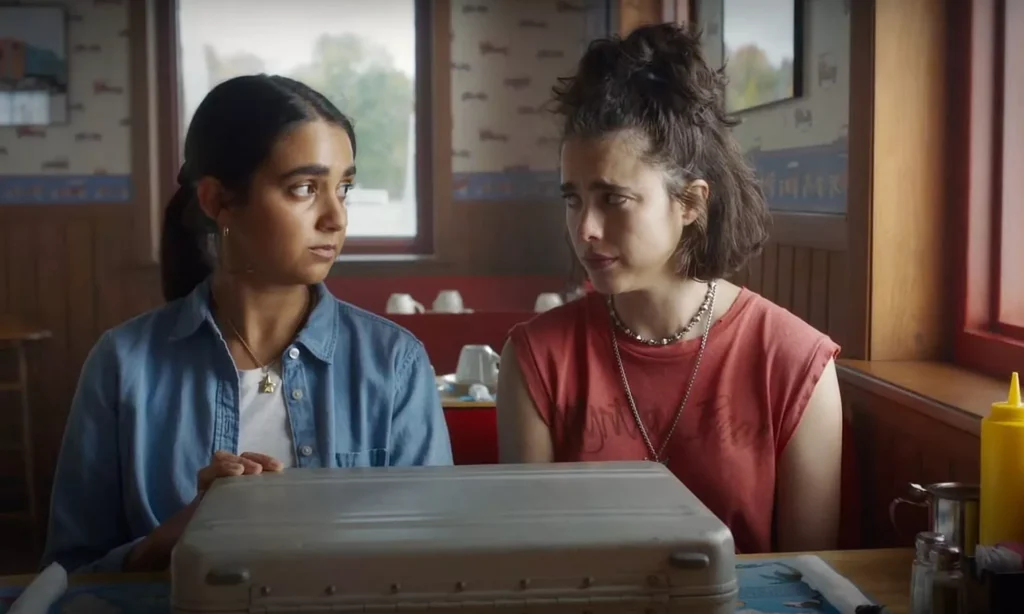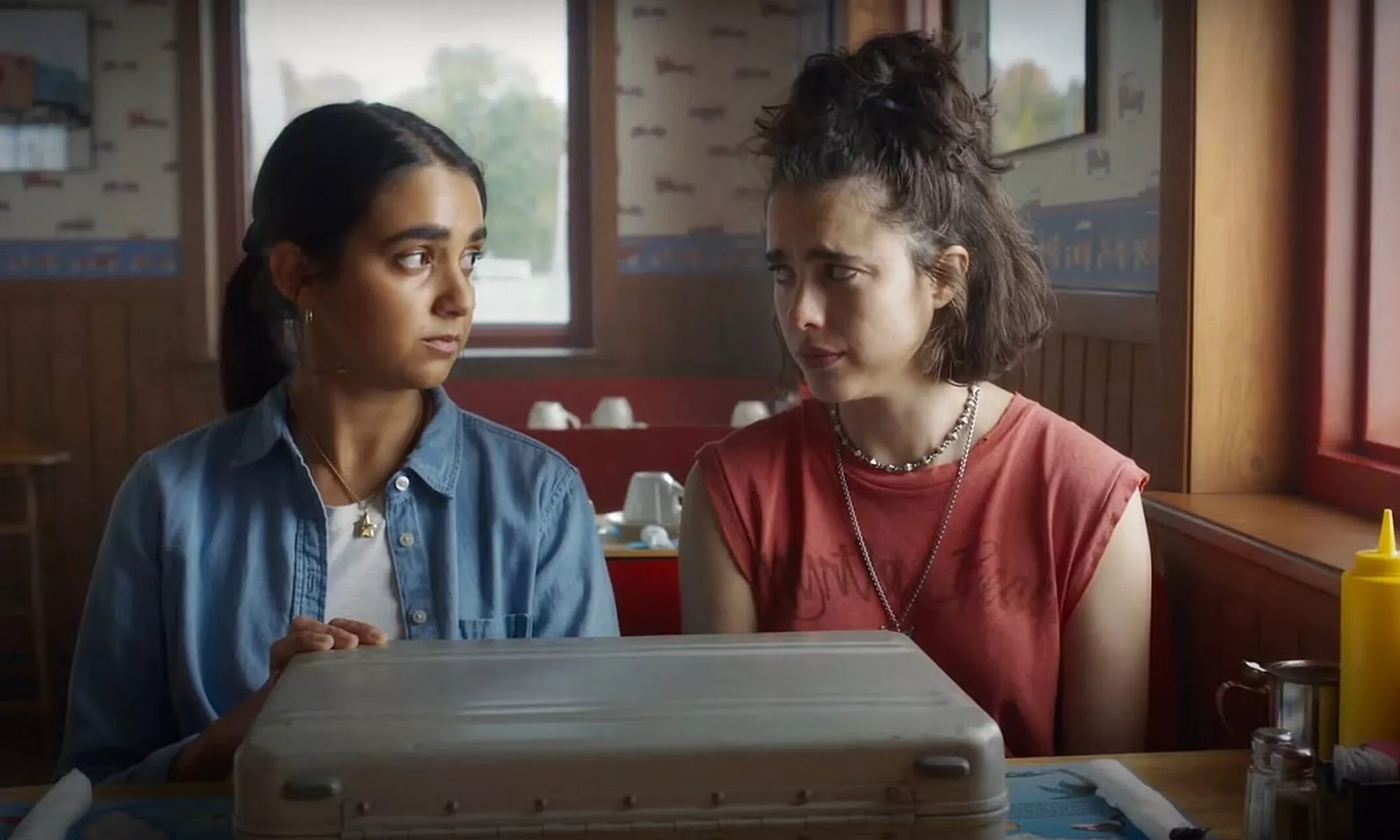Drive-Away Dolls
Posted on February 22, 2024 at 6:39 pm
B +| Lowest Recommended Age: | Mature High Schooler |
| MPAA Rating: | Rated R for crude sexual content, full nudity, language and some violent content |
| Profanity: | Very strong language |
| Alcohol/ Drugs: | Alcohol |
| Violence/ Scariness: | Extended peril and very intense violence including beheading, guns, fire, torture, some graphic and disturbing images |
| Diversity Issues: | Diverse characters |
| Date Released to Theaters: | February 23, 2024 |
| Date Released to DVD: | April 23, 2024 |

Once there was a vibrant category of trashy, low-budget films for the cheap theaters and drive-ins. Sometimes called grindhouse films or exploitation films because they were designed to be shocking, they are so beloved by Quentin Tarantino and Robert Rodriguez that they made a tribute film called “Grindhouse” that was a high-budget version of the kind of 50s double features that inspired them when they were growing up. “Drive-Away Dolls,” from Ethan Coen and Tricia Cooke, is another tribute to the Grindhouse-era films. While the sex and violence that was so shocking in the 1950s that audiences did not care about the shabby the production values are no longer shocking today, “Drive-Away Dolls” captures the transgressive spirit of those films, with no air quotes or irony, just engaging and very sincere joy in the genre. Top-level actors, camerawork, music, and wipes (we’ll get to them later) are just a bonus. Coen and Cooke (an un-credited co-director) say this is the first installment of their planned “lesbian b-movie trilogy.” Cooke is queer and they have spoken about their non-traditional marriage, which they have said is reflected in the relationships in the film.
The foundation for the story is one of the oldest and most beloved in the history of human stories: two people who are very different take a journey with many adventures along the way that expand their understanding of themselves and their world. Those people are the very free-spirited, impulsive Jamie (Margaret Qualley) and the very conventional, wear a suit to the office and correct people’s grammar Marian (Geraldine Viswanathan). It is 1999, and they are queer women living in Philadelphia. Jamie’s girlfriend Sukie (Beanie Feldstein) has just kicked her out for cheating, and she has no place to stay. Her friend Marian is feeling stressed and wants to go to Tallahassee for a break. So, Jamie decides to come along, and suggests they get a drive-away car, through a service that matches up drivers with people who want their cars to be driven to another city. As it happens, Jamie and Marian show up at the drive-away company run by Curlie (a wonderfully dry Bill Camp) just as a car going to Tallahassee has been dropped off. Curlie, who has been told to expect a pick-up and assumes that they are the ones. We, on the other hand, know that they are not.
Jamie paints “Love is a sleigh ride to hell” on the trunk of the car, and the adventure begins. The car they are driving to Tallahassee is of great interest to some very bad people. We have already seen that they are prepared to kill and inflict all kinds of mayhem and that it relates somehow to, perhaps a nod to Tarantino and “Pulp Fiction” here, an aluminum briefcase with contents that, unlike “Pulp Fiction,” will eventually be revealed and, trust me on this, you are not going to guess correctly.
The film is stylized but stylish with wipes — the transitions from one shot to the next — that are amusingly old-school and surprising guest star cameos I will not spoil here. Jamie and Marian have a lot of adventures along the way, including a make-out party with a female soccer team that is skillfully filmed in a manner that is empowering rather than explotative. The goons (as they are credited) sent to get back the briefcase have their own adventures in between bickering with each other about whether finesse or brutality is the best way to get what they want. The film includes the characteristic Coen twisty-funny dialogue, and makes good use of the settings, including statues of William Penn and Ponce de Leon gazing down on the wild adventures below. Qualley and Viswanathan are two of Hollywood’s most engaging young stars and their performances are joyful and captivating, their imperishable freshness and high spirits making it impossible for the outrageous elements to seem tawdry. It’s not for everyone, but it will be an instant favorite for fans of the Coens.
Parents should know that this movie has nudity and explicit sexual references and situations, a lot of peril and violence including a beheading, guns, knives, and fire, and very strong language.
Family discussion: Where would Jamie and Marian be today and what would most surprise them about what has and has not changed since 1999? How did they see each other differently over the course of the trip?
If you like this, try: “Grindhouse” and “Bottoms”

